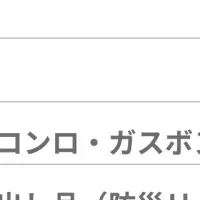
Final Compilation of Fourth Barrier-Free Improvement Goals Announced by Japan's Ministry of Land, Infrastructure, Transport and Tourism
Final Compilation of the Fourth Barrier-Free Improvement Goals
On June 27, 2023, the Ministry of Land, Infrastructure, Transport and Tourism (MLIT) of Japan revealed the final compilation of its fourth barrier-free improvement goals, marking a critical advancement in the nation’s accessibility initiatives. This compilation has been the result of extensive discussions over the past year within the 'Council on the Review of the Barrier-Free Act and Related Policies.'
Background of the Study
Since May of last year, various stakeholders, including academics, organizations representing the elderly and people with disabilities, and business groups, have been actively involved in discussions to address important challenges surrounding future barrier-free measures. This collaborative effort has culminated in a refined set of goals and strategies to enhance accessibility across various sectors.
Highlights of the Final Compilation
The recently released document emphasizes several key objectives:
1. Introduction of New Goals: The MLIT has introduced new objectives aimed at enhancing accessibility at railway stations. These include the installation of disability-friendly ticket machines and widened ticket gates. Additionally, steps to minimize gaps and height differentials between platforms and trains have been defined.
2. Revision of Existing Goals: The existing numerical targets for vehicles such as railway cars and non-step buses will see a significant increase, reflecting the commitment to further improve accessibility.
3. Focus on Key Challenges: The report highlights several major challenges that need to be addressed as part of the future barrier-free initiatives:
- Development of barrier-free urban environments tailored to regional characteristics.
- Promotion of psychological awareness towards accessibility, termed ‘heart barrier-free.’
- Effective use of Information and Communication Technology (ICT) to support accessibility.
- Involvement of stakeholders, particularly those directly impacted, in the planning and execution of barrier-free strategies.
The MLIT has set an ambitious new goal of increasing the number of municipalities that will actively review and update their basic plans under the barrier-free law. This 'spiral-up' approach is intended to further promote inclusive environments across Japan.
Target Period
The goals defined in this compilation will be in effect from fiscal year 2026 through to 2030, outlining a five-year development period during which these strategies will be implemented.
Future Collaborations
Going forward, the MLIT plans to amend the basic principles under the Barrier-Free Law based on the findings from this compilation. Collaborations will be sought among various entities, including the national government, local governments, transportation operators, and facility managers, to effectively push for enhanced barrier-free environments nationwide.
The initiative is a powerful testament to Japan’s commitment towards creating an inclusive society for everyone, ensuring that barriers—both physical and psychological—are systematically reduced.
In conclusion, the final compilation of the fourth barrier-free improvement goals represents a significant step forward in Japan’s efforts to foster an environment where all individuals, regardless of their abilities, can participate fully in society. As these goals are set into motion, it will undoubtedly lead to a more accessible and inclusive future for all residents of Japan.
Topics Policy & Public Interest)










【About Using Articles】
You can freely use the title and article content by linking to the page where the article is posted.
※ Images cannot be used.
【About Links】
Links are free to use.